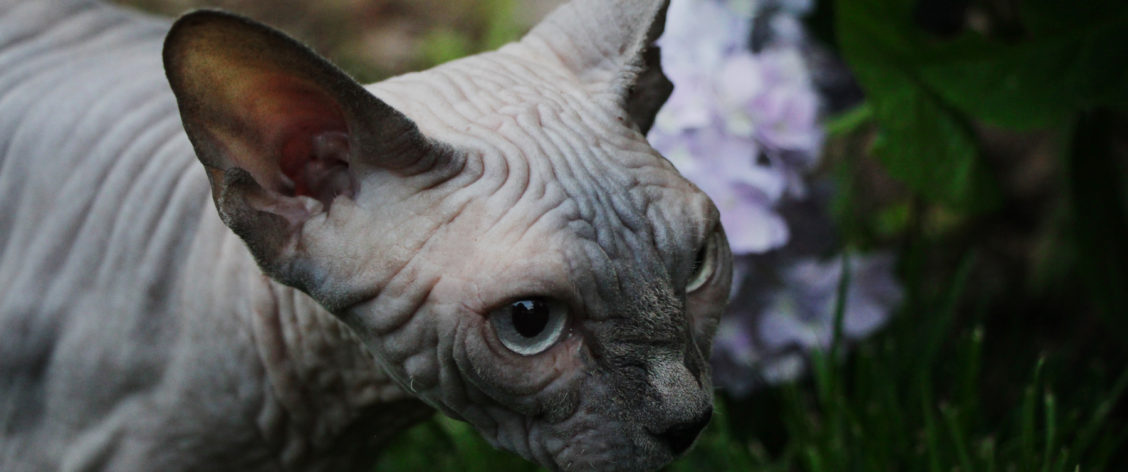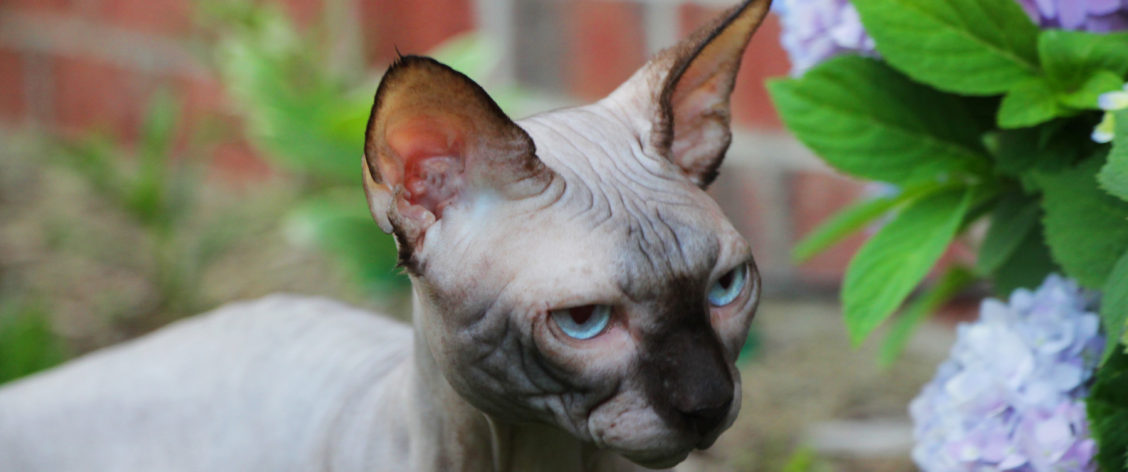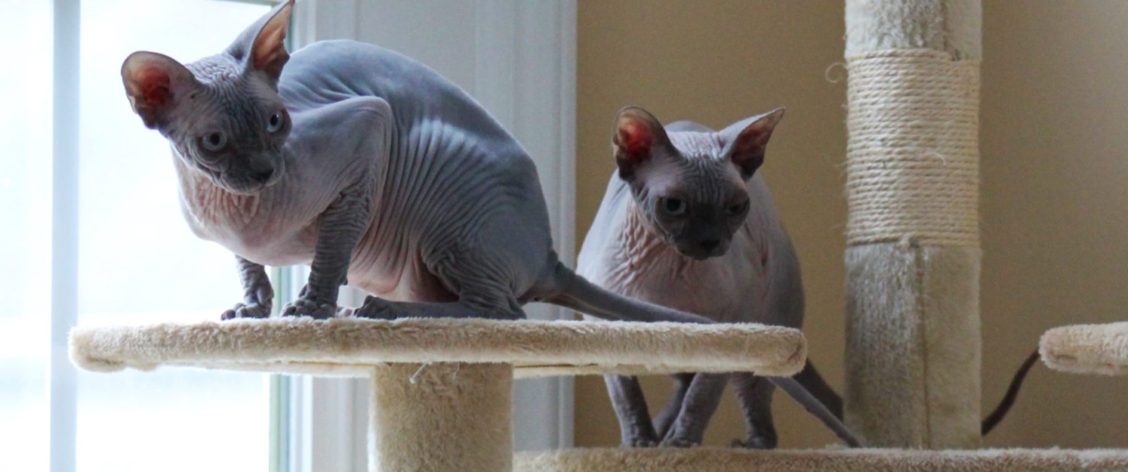What is Hypertrophic Cardiomyopathy (HCM)?
According to Dr. Nuala Summerfield, “Feline Hypertrophic Cardiomyopathy (HCM) Explained by expert Nuala Summerfield on March 12, 2013 category Feline Medical Problems, Heart Disease. Heart disease in cats is not uncommon but, like many conditions, cats can mask quite a serious problem very well. In this article cardiologist Nuala Summerfield explores the most common type of acquired heart disease in cats – hypertrophic cardiomyopathy.
What is Feline Hypertrophic Cardiomyopathy (HCM)?
Feline Hypertrophic Cardiomyopathy (HCM) is a type of heart disease that causes thickening or “hypertrophy” of the heart muscle.HCM mainly affects the muscle of the left ventricle. The left ventricle is the chamber of the heart which pumps blood around the body. This thickening makes the left ventricle stiffer and less able to relax. If it can’t relax then it can’t fill properly during each heartbeat so it pumps less blood into the circulation with each contraction.
Is HCM common in cats?
HCM is the most common form of acquired heart disease in cats but it is rare in dogs.
What causes Feline Hypertrophic Cardiomyopathy (HCM)?
Feline Hypertrophic Cardiomyopathy (HCM) is probably inherited in certain breeds such as the Maine Coon and Ragdoll.The exact cause of Feline Hypertrophic Cardiomyopathy (HCM) in most cats is unknown. However, it is likely that HCM is inherited in certain predisposed breeds of cats. For example the Maine Coon and Ragdoll. This may also be the case for other breeds such as the Norwegian Forest Cat and Sphynx. Hypertrophic Cardiomyopathy (HCM) is a disease seen in humans too, and in the majority of human cases there is an inherited genetic disorder.Middle-aged and older cats are most commonly affected. Males are more frequently affected than females.
It is important to remember that heart muscle thickening resembling HCM can sometimes develop secondary to other disorders such as an over-active thyroid gland (hyperthyroidism) and elevated blood pressure (systemic hypertension). Hyperthyroidism and systemic hypertension are more common in older cats. Blood pressure measurement and, in cats over five years of age, a blood thyroid hormone test, should be done to exclude these other causes of heart muscle thickening.
If my cat has Feline Hypertrophic Cardiomyopathy (HCM), what signs will he/she show?
Some cats show no sign of illness, especially early in the disease when the degree of heart muscle thickening is still mild.
However, once HCM is advanced and the heart muscle is very thick, signs of congestive heart failure may be seen. Congestive heart failure causes fluid accumulation in and around the lungs and signs you may see include:
- lethargy
- decreased activity level
- rapid and/or laboured breathing and possibly open mouth breathing (panting) with excitement or exercise.
Other, perhaps less common, signs can include:
- sudden weakness
- collapsing episodes
- and unfortunately even sudden death due to disturbances in heart rhythm.
Cats with advanced heart disease may also show non-specific signs of illness such as decreased appetite and / or weight loss.In contrast to dogs, which often cough when they develop heart failure, coughing is not a common symptom of congestive heart failure in cats. Coughing cats are more likely to have airway disease rather than heart failure!
In some cats with HCM, a blood clot may form within the heart chambers (typically within the left atrium). If the blood clot enters the circulation, this may cause weakness or paralysis (usually of the rear legs). If you think this may have occurred in your cat, you must contact your veterinary surgeon immediately and your cat must receive urgent medical treatment. This is an extremely serious complication that may be fatal in some cats.
How can Feline Hypertrophic Cardiomyopathy (HCM) be diagnosed?
An echocardiogram (heart ultrasound) is often recommended to confirm a suspected diagnosis of Feline Hypertrophic Cardiomyopathy (HCM) and to determine how advanced the heart disease is.
An examination performed by your veterinary surgeon may reveal one or more of the following:
- A heart murmur (caused by turbulent blood flow in the heart)
- Abnormal heart sounds (typically a “gallop” sound to the heartbeat)
- Abnormal lung sounds (suggesting fluid accumulation in the lungs), or
- Irregularities in the heart rhythm.
Chest radiographs (x-rays), an electrocardiogram (ECG), and an echocardiogram (heart ultrasound) are tests often recommended to confirm a suspected diagnosis of HCM and to determine how advanced the heart disease is.
How is Feline Hypertrophic Cardiomyopathy (HCM) in cats treated?
If your cat is diagnosed with HCM but has no symptoms, a routine physical examination and one or more specialised tests (i.e. an echocardiogram, chest radiographs, ECG) may be recommended every six to twelve months to monitor for any progression of the disease. Heart medications may not be necessary if your cat has no symptoms, but regular re-evaluations are still very important to monitor for progression of the underlying HCM.
However, some cats with HCM and no symptoms may need heart medications to slow their heart rate and to help the heart muscle to relax, allowing their heart chambers to fill properly during each heartbeat. The decision as to whether to start heart medications in a cat with HCM before symptoms develop is often based on the results of the echocardiography, chest x-rays and ECG.
Cats with more advanced HCM and symptoms will often need additional heart medications to help control abnormal heart rhythms (usually referred to as arrhythmias) or congestive heart failure (fluid in or around the lungs).
Will my cat need medications and follow-up appointments?
Since HCM is often progressive, the number and the amount of cardiac medications needed by an individual cat may change with time. Medical therapy is always chosen to meet the needs of the individual patient. Frequent recheck examinations and medication adjustments may be needed, especially early in the course of treatment, to make sure the treatment is having the desired effect.
About Nuala Summerfield
Nuala is a European and American Recognized Specialist in Veterinary Cardiology. She has worked in University teaching hospitals in both the USA and UK and has been in specialty Cardiology referral practice since 2005. Nuala has lectured and published widely in the field of heart disease in cats and dogs”(March 12, 2013).




